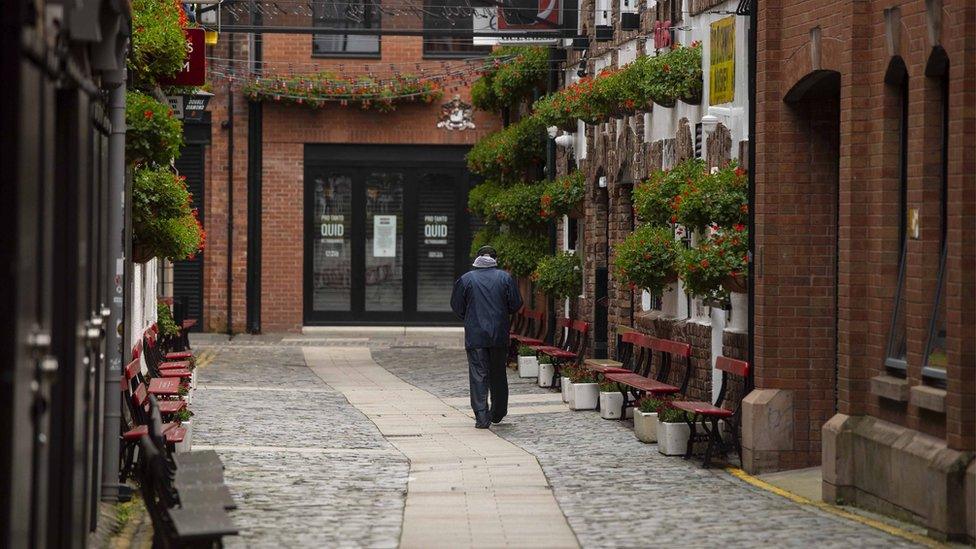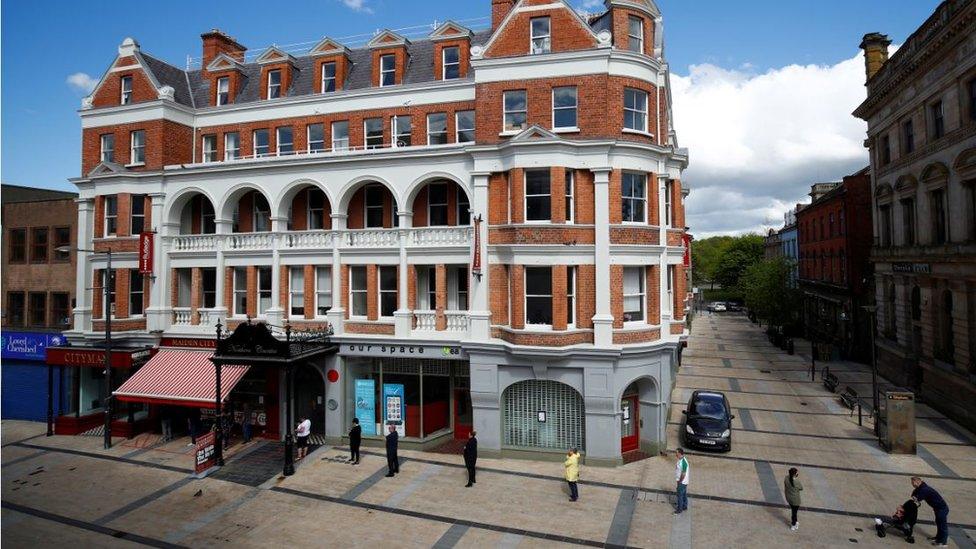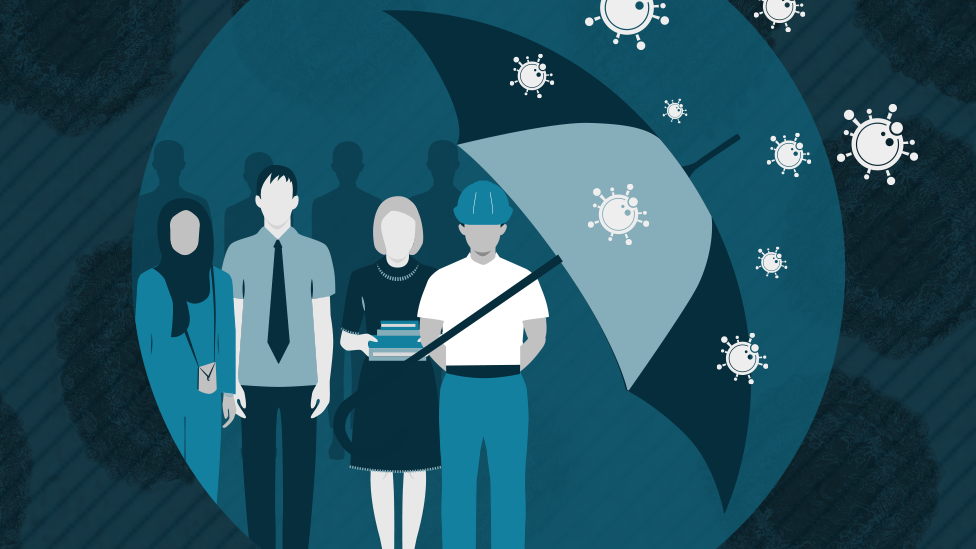NI furlough claims fell to 70,500 by end of August
- Published

Businesses that were unable to trade because of Covid restrictions have used the furlough scheme
New data from the Treasury shows 70,500 people in Northern Ireland remained on furlough by the end of August.
This figure was down on the previous four weeks when 111,800 people were on the coronavirus job retention scheme.
The drop may be explained by the fact August marked the first time employers had to top up the scheme, covering the cost of national insurance and pension contributions.
As the end of July, slightly more men were furloughed than women.
The Belfast South constituency had the highest uptake of the furlough scheme in Northern Ireland.
Furlough, officially known as the coronavirus job retention scheme, was introduced in March as the UK faced into the first wave of the pandemic.
Initially, it paid 80% of the wages of furloughed workers whose jobs had been affected by lockdown, up to a maximum of £2,500 a month.
But in August the rules changed and employers had to pay national insurance and pension contributions for the hours each employee was on furlough.
The furlough scheme is being gradually wound down and by September, the government was covering 70% of furloughed workers' salaries.
That meant employers had to pay at least 10% of their employees wages to ensure they received at least 80% of their usual income.
This month, the government's contribution has fallen to 60%, meaning employers have to pay 20% of the wage bill, at a time when many businesses are closed due to fresh Covid restrictions.
Furlough is set to end on 31 October but it will be replaced by the Job Support Scheme on 1 November.
Earlier on Thursday, Chancellor Rishi Sunak announced big changes to the Job Support Scheme with increased support for businesses and workers.
Under the revised scheme, employers will pay less and staff can work fewer hours before they qualify for payments.
- Published22 October 2020

- Published22 October 2020

- Published22 October 2020

- Published30 September 2021
